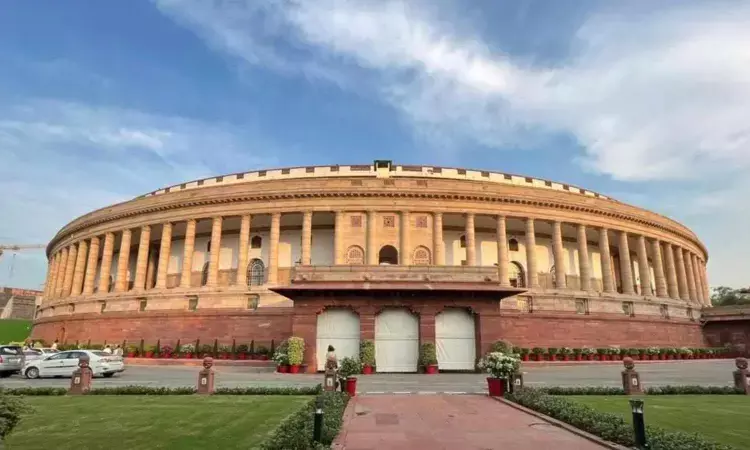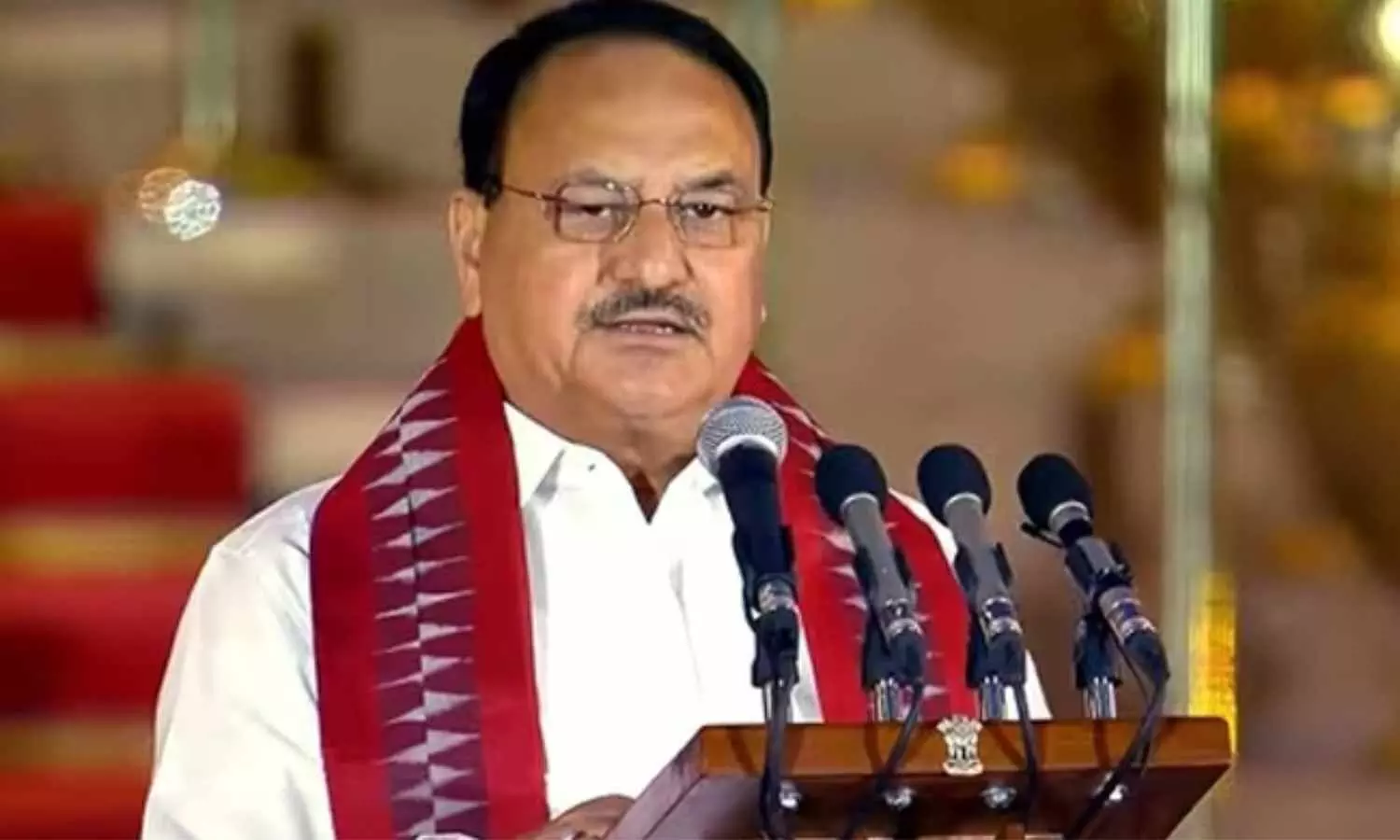- Home
- Medical news & Guidelines
- Anesthesiology
- Cardiology and CTVS
- Critical Care
- Dentistry
- Dermatology
- Diabetes and Endocrinology
- ENT
- Gastroenterology
- Medicine
- Nephrology
- Neurology
- Obstretics-Gynaecology
- Oncology
- Ophthalmology
- Orthopaedics
- Pediatrics-Neonatology
- Psychiatry
- Pulmonology
- Radiology
- Surgery
- Urology
- Laboratory Medicine
- Diet
- Nursing
- Paramedical
- Physiotherapy
- Health news
- Fact Check
- Bone Health Fact Check
- Brain Health Fact Check
- Cancer Related Fact Check
- Child Care Fact Check
- Dental and oral health fact check
- Diabetes and metabolic health fact check
- Diet and Nutrition Fact Check
- Eye and ENT Care Fact Check
- Fitness fact check
- Gut health fact check
- Heart health fact check
- Kidney health fact check
- Medical education fact check
- Men's health fact check
- Respiratory fact check
- Skin and hair care fact check
- Vaccine and Immunization fact check
- Women's health fact check
- AYUSH
- State News
- Andaman and Nicobar Islands
- Andhra Pradesh
- Arunachal Pradesh
- Assam
- Bihar
- Chandigarh
- Chattisgarh
- Dadra and Nagar Haveli
- Daman and Diu
- Delhi
- Goa
- Gujarat
- Haryana
- Himachal Pradesh
- Jammu & Kashmir
- Jharkhand
- Karnataka
- Kerala
- Ladakh
- Lakshadweep
- Madhya Pradesh
- Maharashtra
- Manipur
- Meghalaya
- Mizoram
- Nagaland
- Odisha
- Puducherry
- Punjab
- Rajasthan
- Sikkim
- Tamil Nadu
- Telangana
- Tripura
- Uttar Pradesh
- Uttrakhand
- West Bengal
- Medical Education
- Industry
Government Health Expenditure's share in country's total GDP increases from 1.13 per cent (2014-15) to 1.35 per cent (2019-20): MoS Health

Lok Sabha
New Delhi: As per the National Health Accounts, the Government Capital Health Expenditure, which includes expenditure on infrastructure, has increased from Rs 31,912 crores to Rs 61,874 crores between 2013-14 and 2019-20, the Union Minister of State for Health Shri Prataprao Jadhav informed the Lok Sabha recently.
The Minister was responding to the questions raised by Shri Tariq Anwar about the details of health expenditure as a percent of GDP and that of the budget of the country respectively during the last ten year, year-wise; whether the Government’s spending on health infrastructure is on decline while the expenditure on health insurance is increasing, if so, the details thereof; the details of the implications of high dependency on imports for advanced medical devices and equipment like CT scans, MRIs and linear accelerators and the proposed action plan to overcome it.
He also asked about the number of allotted PM-Care Ventilators available in Hospitals that are functional, State-wise; whether it is a fact that the Government is falling short of its targets for achieving Universal Health Coverage in the State of Bihar, particular in district of Katihar, if so, the details thereof, district-wise; the details of non-functional equipments in Government hospitals in the State of Bihar during the last six months; and the steps taken/proposed to be taken by the Government for upgrading or establishing multi-specialty hospitals in Katihar district of Bihar?
The MoS Health informed that during the same period, expenditure on all government-financed health insurance schemes where the government provides health coverage free of charge, especially to the vulnerable section, increased from Rs 4,757 crores to Rs 13,809 crores. In order to attain self-reliance, reduce import dependence, and boost domestic manufacturing in the medical device sector, the Department of Pharmaceuticals launched a Production Linked Incentive (PLI) Scheme for the promotion of domestic manufacturing of Medical Devices to ensure a level playing field for the domestic manufacturers of medical devices. The total financial outlay of the Scheme is Rs.3,420 crore for the period 2020-21 to 2027-28.
During the COVID period, the ventilators procured and provided by the Ministry of Health and Family Welfare (MoHFW) came with a warranty of one year (except 350 ventilators of Allied Meditec, which carried a warranty of three years). These ventilators have been provided to States/UT and after the initial warranty period, the maintenance & operationalization of these ventilators is the responsibility of the State/UT Governments. States were requested to ensure that ventilators are handled by trained doctors, paramedical workers, bio-medical engineers etc. They were requested to arrange maintenance and upkeep of these ventilators at their level and to ensure that these ventilators are fully functional at all times.
Under the National Health Mission, the Government has taken many steps towards universal health coverage by supporting the State Government in providing accessible & affordable healthcare to people. Under the National Health Mission, financial and technical. support is provided to States/UTs to provide accessible, affordable and quality healthcare, especially to the poor and vulnerable sections of the population, in both urban and rural areas. As updated by the States/UTs in AAM portal, a total of 1,73,410 Ayushman Arogya Mandir have been operationalized as of 30.06.2024 with 278 AAMs operationalized in the Katihar district of Bihar. Existing Sub-Health Centres (SHC) and Primary Health Centres (PHC) in rural and urban areas are transformed into AAM to deliver an expanded range of comprehensive primary healthcare services with a complete 12 package of services that include preventive, promotive, curative, palliative, and rehabilitative services which are universal, free, and closer to the community.
Further, the various initiatives carried out under the National Health Mission (NHM) by Government of India in various States are operationalization of Ayushman Arogya Mandir (erstwhile Ayushman Bharat Health and Wellness Centres) by transforming the existing Sub Centres and Primary Health Centres support for engaging of health human resource on a contractual basis, National Ambulance Services, Mobile Medical Units, ASHAs, Infrastructure strengthening, 24 x 7 Services and First Referral facilities, Mera Aspataal, Kayakalp Award Scheme, Prime Minister’s National Dialysis Programme, National Quality Assurance Standards implementation and related Activities, LaQshya Certification, Biomedical Equipment Maintenance and Management Programme, Free Diagnostics Service Initiative and Free Drugs Service Initiative, the Minister stated.
The Pradhan Mantri Swasthya Suraksha Yojana (PMSSY) aims to correct regional imbalances in the availability of affordable tertiary healthcare services and to augment quality medical education in the country. The scheme has two components (a) setting up of new AIIMS and (b) upgradation of existing Government Medical Colleges /Institutions (GMCIs). The setting up of 22 New AIIMS and 75 upgrade projects of Government Medical Colleges/ Institutes have been approved under the Scheme. Upgradation projects of GMCIs are implemented on a Central and State share basis. Two AIIMS have been sanctioned under the Scheme for the Bihar State- one AIIMS at Patna which is fully functional and the other AIIMS at Darbhanga. In Bihar State, 6 projects have been taken up for the up-gradation of GMCI under various phases of PMSSY, Minister added.
Sanchari Chattopadhyay has pursued her M.A in English and Culture Studies from the University of Burdwan, West Bengal. She likes observing cultural specificities and exploring new places.



